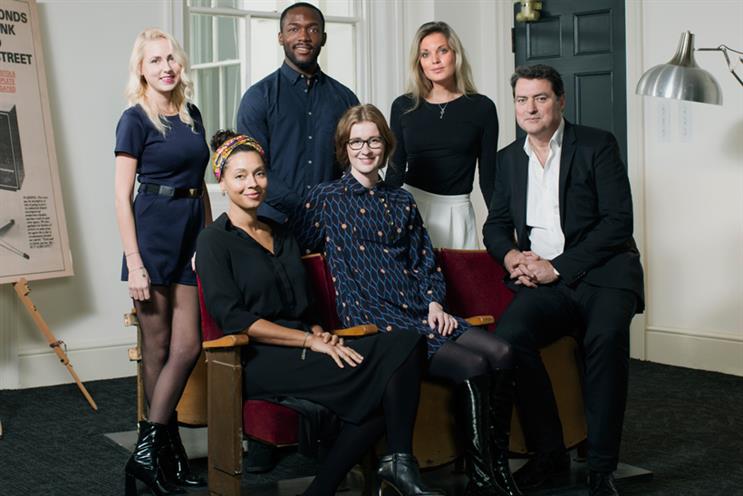Twenty years ago when I was editor of 北京赛车pk10, "diversity" started to become "a thing". The subject had scarcely existed in public as late as the early 90s when the male, pale, hetero advertising establishment was scarcely challenged. It gained traction as female leaders emerged in British adland and the advent of digital gave rise to greater democratization of opinion and opportunity.
To be clear, there were female trailblazers back then: first-name legends like Christine in media, Cilla, Stevie, Amanda and MT in agency management (Danielle Barr too), Rosie and Tiger in the creative "department". Anthea Benton of Vaughan and Anthea was the female commercials director of note. Apologies to those I have overlooked, but today: Tamara Ingram, Sarah Golding, Kate Stanners, Claudine Collins, Vicki Maguire, Annette King and Philippa Brown stand on their shoulders. They would be the first to acknowledge this. The point is, given another paragraph, I could probably name the rest.
"Decades of "talking" without action enable such eye-rolling cynicism behind the lazily binary "diversity versus talent" thinking expressed so infamously here by Justin Tindall"
Two senior black faces blazed Karen Blackett and Magnus Djaba’s trail: Ray Barrett and Trevor Robinson (Jonathan Mildenhall was a pup). Executives of Asian descent? Farah Ramzan Golant, Naresh Ramchandani and the extraordinary Tarsem Singh. As for openly gay advertising folk – did I mention Jonathan was a pup? Class diversity had improved from 60s ex-officer and Oxbridge days. David Bailey, Alan Parker, Dave Trott and Trevor Beattie were working class boys (always boys) made good who became inspirations.
In which ways has today’s ad industry improved? Clearly, there are more senior women and more at most levels of the business – although creative departments are still chronically under-represented, particularly at ECD level. There was still only one woman (Dunlop) in the top ten commercials directors list - again. Events I attend today contain those same faces of colour, almost exclusively: hello, Mr Robinson. The obsession with graduates and closure of post rooms have re-established the class divide.
I have to hope Tindall was actually trying to damn box-ticking, but his poor words were born of privilege
How can such uniformity still be the norm? Decades of "talking" without action enable such eye-rolling cynicism behind the lazily binary "diversity versus talent" thinking expressed so infamously here by Justin Tindall. I have to hope Tindall was actually trying to damn box-ticking, but his poor words were born of privilege. You are not "tired" if you are the marginalised on the outside trying to get in.
Advertising is scarcely alone in this regard: look at insurance or engineering. Despite endless headlines about the talent gap or skills shortage; notwithstanding the soaring number of unfilled job vacancies, which will only worsen with Brexit; or even that the career is no longer that attractive to millennials fuelled by start-up dreams - advertising still seems impenetrable.
There is not really a skills shortage, but rather an "opportunity gap". Lack of access holds so many back, not talent. Marginalisation takes many forms: ethnic minorities (especially working class), women, people who didn’t go to the right school or university, 50+ "returnees" who need their confidence rekindled. Mirror recruiting, CV apartheid and unconscious bias are all too real.
The inextricable link between the industry’s make-up and its output has been rightly called out - ad nauseam. Two decades of talking later the problems with output persist because the lack of workplace diversity remains frustratingly entrenched.
Recruiting is broken. As with insurance, the obsession with fishing in the same old graduate pools for talent is self-harming. The model genuinely needs disrupting. One new way of doing this is online mentoring: matching talent without access to power in the world of work with those within work that lack the ability to discover that talent.
So, today, National Mentoring Day, my partners and I are launching the Connect Mentors online mentoring platform, matching groups of ready "mentees" from marginalized communities with corporates full of willing mentors via a fiendish algorithm. The first clients are insurance giants, Brit and Canopius, keen to tackle head-on their industry’s "male, pale and stale" make-up. For insurance - read the opportunity gap in advertising, marketing and media. It’s long past time to stop talking and actually do something to #closethegap.
Stefano Hatfield is editorial director of Connect Mentors, which launches today, National Mentoring Day
Pictured above: The Connect Mentors team – back row: Elina Hedman, Kobby Adarawa, Ellie Camm; front row: Jessica Huie, Pippa Roden, Stefano Hatfield.


